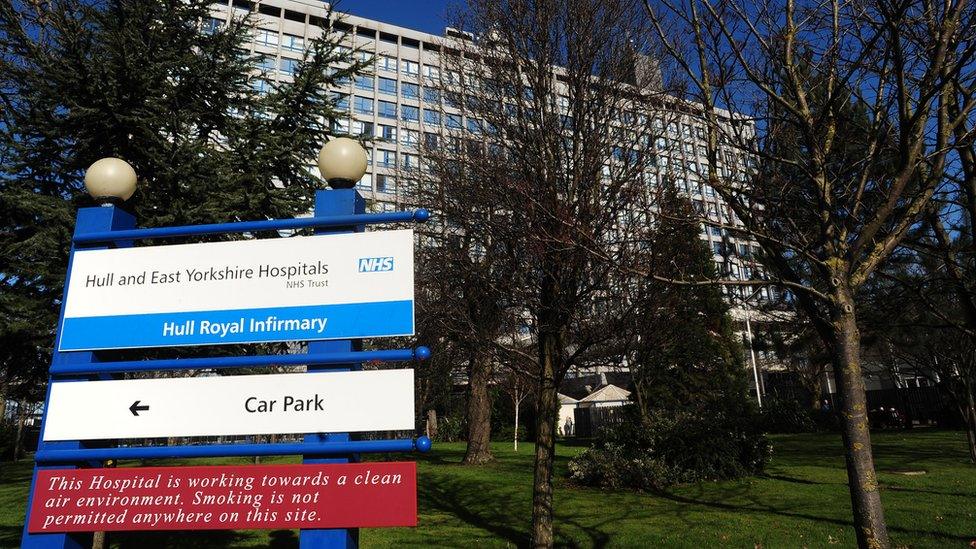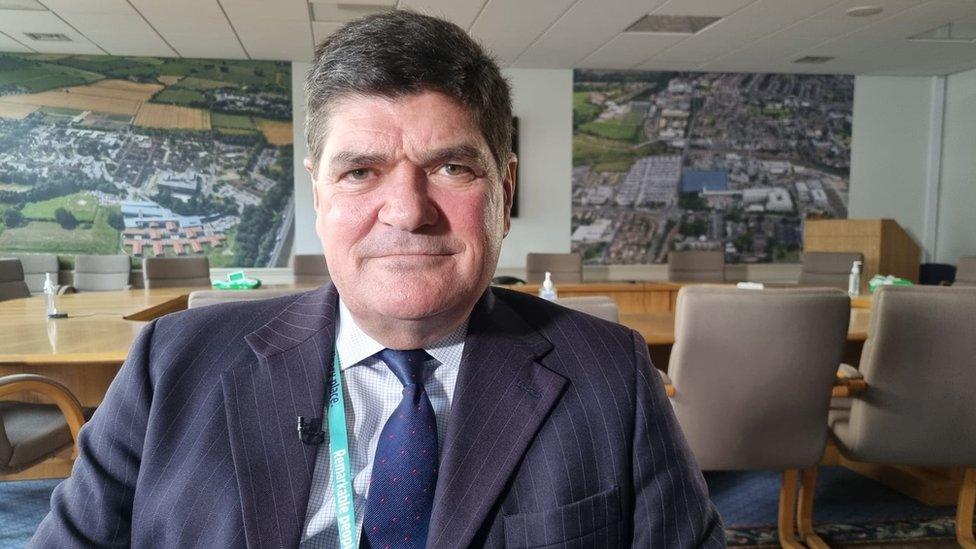Hull A&E is a 'death trap', whistleblowers warn
- Published

Hull A&E staff have described morale as "non-existent"
Whistleblowers have described the accident and emergency (A&E) department at Hull Royal Infirmary as "incredibly dangerous" and a "death trap".
The Care Quality Commission (CSC) found Hull University Teaching Hospitals required improvement overall and its A&E department was rated inadequate.
Two clinical staff members, who wished to remain anonymous, described it as a "toxic" place to work.
The trust said the report found it had enough staff to ensure patient safety.
Speaking to the BBC, the two staff members who have worked in Hull's A&E department said they had raised concerns with senior managers and the CQC.
They said there were frequently fewer staff than needed and warned inexperienced staff, one whom had never seen a cardiac arrest, were working in areas like resuscitation, which was "incredibly dangerous".
'It is terrifying'
"Nurses who aren't even signed off to give oral medication are being put in resuscitation," one said.
"It's a death trap, it is terrifying."
Despite these concerns, CQC inspectors in December and November did find the service "had enough nursing and support staff to keep patients safe".
However, they said the department "did not always ensure staff were competent for their roles".
Chris Long, chief executive of the trust, said the issues reflected the challenges of high demand and the difficulties in discharging patients who were medically fit.
He added there had been a high turnover of staff, particularly given the impact of the pandemic in the last few years.
He said: "What we can't do, as easily as we want to, is recruit skilled experienced staff so we are having to take staff out of the training system and train them on the job."
He said a number of experienced staff, who had delayed their retirement during Covid, were now leaving and that the issue of attracting skilled staff was a national one, with more than 125,000 vacancies across the NHS.

Chris Long said the trust was addressing the issues raised
The members of staff who spoke to the BBC also described a "very toxic atmosphere" in the A&E department and a lack of morale.
"Numerous staff are leaving, one even quitting their job without another to go to," they said.
"Experienced doctors and nurses have left in droves and the department is relying on junior, inexperienced staff."
Another said: "There was a real problem in retaining experienced staff - the culture of bullying and blame had a huge impact, along with the lack of opportunity for career progression."
However, a trust spokesperson said the department had a low vacancy rate of less than 5% and more junior doctors than ever before.
"We have 20.5 consultant posts in A&E with one vacancy, and we have increased this number of posts by three in the last 18 months." they added.
Mr Long said the trust had also done a great deal of work to address cultural issues, while accepting the pressure staff faced.
"You get to a point people are so tired, so burned out, so worn out, that if they are being asked to do something they don't feel comfortable with or just don't want to do that would often result in people using terms like bullying."
He said the trust was, like many others, experiencing a "sustained period of extreme pressure" on its emergency services and said a number of improvements in response to the report were already taking place.
"We apologise to anyone who has not received the quality of care we always aim to provide," he said.

Follow BBC East Yorkshire and Lincolnshire on Facebook, external, Twitter, external, and Instagram, external. Send your story ideas to yorkslincs.news@bbc.co.uk, external.
Related topics
- Published23 March 2023

- Published8 December 2022
